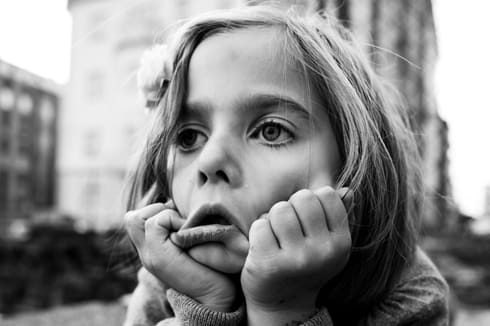
5 novels to help you be a better mom
Read these five novels to be a better mom by gleaning from the wisdom of the past.
Yes, moms should read novels. Story grip might be a strong temptation, but it’s worth the struggle. I’ve written before about how reading novels changed my homemaking by waking me up to some of my bad attitudes about housework back when my third child was an infant.
The funny thing about this experience was that I did not go into those novels thinking I’d get insights that directly applied to my current life. I was reading the novels to rest, to pass a quiet evening, to occupy my mind while painting the kitchen, to have something in hand while nursing.
I was also reading books to solve my current plights, but for solutions I turned to nonfiction. I read productivity books, homemaking books, Christian living books. They were helpful and many things I learned from those books still influence me today, but it was the unexpected gut-punch of the novels that really helped me wake up to myself.
So when a reader emailed and asked me for suggestions of classic novels she could read that had good examples of mothers seeking to serve their families, I thought she was asking a good question:
Thank you so much for all of your work for homeschooling Christian homemakers. I am really enjoying your new book because I struggle with perfectionism. I was just wondering if you happen to have any suggested classic novels with good examples of mothers seeking to serve their families.
Stories can change our mind and our affections more dramatically and effectively than nonfiction, so it is a worthwhile question. However, we have to be careful about what we really want from a novel.
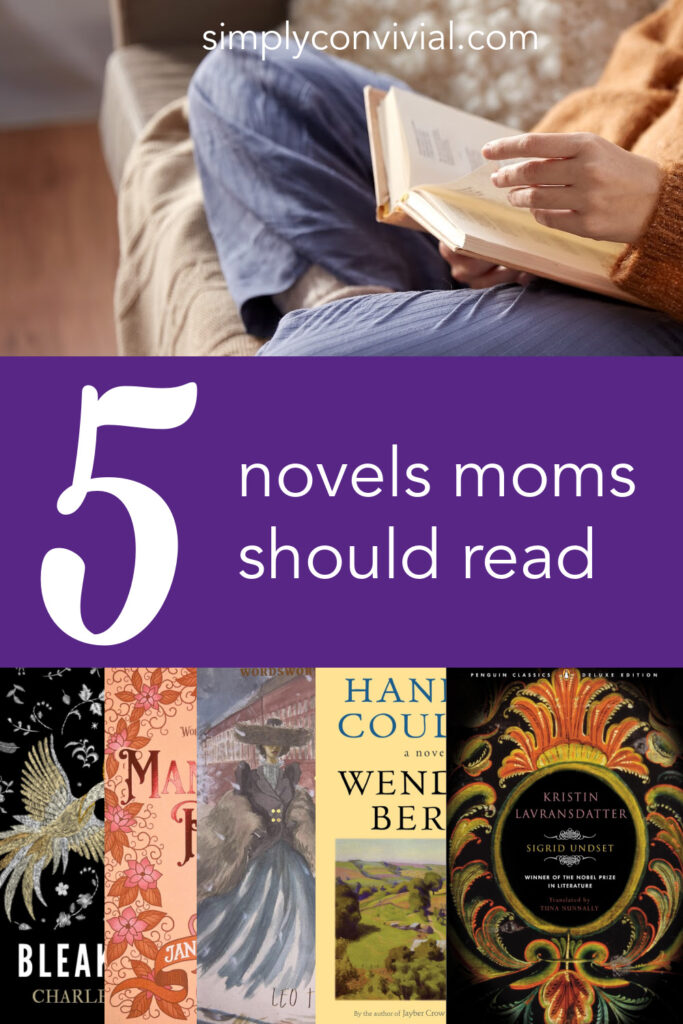
Avoid the Elsie Dinsmore Trap
When I was a kid, there was a popular series for girls in the homeschool world: Elsie Dinsmore. The series was recommended as sweet, safe, and Christian, promoting proper priorities for young girls.
Do we want our girls (or ourselves?) to be goody-two-shoes? Do we want our children to be so good their personal standards are elevated above their parents’ standards?

Elsie Dinsmore is the perfect example of a novel that actually undermines exactly what it sets out to teach. The main character is so pristine and so good that it is actually a false story that in no way helps our daughters handle real life or real people.
If they identify with Elsie, they actually are thinking too highly of themselves. If they don’t identify with Elsie, they will likely conclude a Christian way of life just isn’t for them.
But the version of a Christian life Elsie leads is one of false guilt and overwrought repentance over the false guilt.
Now, we don’t want to overreact into grunge Christianity that says to be “real,” we need to wallow in the messy sinfulness of unrepentant humanity.
Instead, we want to recognize the value of old-school, traditional fairy tales – the ones that make sweet moms skittish and squeamish.
Gleaning wisdom from stories

Fairy tales like those Lang collected in his many fairy books teach us in principle that bad things are bound to happen, but we have choices about what we do with unfortunate circumstances.
They teach us that no matter how bad a situation is, a “hero” can always make it worse. And, a true hero in a bad situation shines all the brighter because he still chooses rightly despite pressure to the contrary.
Choices can always be made and choices always come with consequences. We can be satisfied with our good choices even when we don’t see an instant reward.
Classic fairy tales that haven’t been savaged for modern sensibilities prepare us and our children for real life better than any sappy feel-good story, no matter how prim, proper, and pretty the heroine.
Novels aren’t morality tales
So when we look for novels, for stories about people and the human condition, to help us learn to love what must be done as moms and homemakers, we actually don’t want stories that have idealized mother figures or that moralistically present what we all ought to be doing.
We won’t learn how to be good mothers by such stories, because it turns out we are not ideal mothers. Usually such characters are props and foils to the main character, not developed characters in their own right.
Better to read a story with a noble and benevolent queen, and then translate her traits into our own lives than look for a story with a perfect homemaker-character and attempt to imitate her.

For example, we learn what manly nobility and courage and leadership is like from Aragorn, but we are all hobbits who merely esteem nobility and courage through him, not do what he does.
So what do we learn of what queenly femininity looks like from Galadriel? (Hint: the movies can’t teach properly because the writer and producers had no concept of manly nobility or queenly femininity – you have to go to the books for this.) What do we learn of patience and feminine stalwartness from Arwen?
Wisdom from novels for moms
Perhaps the best lessons for us as modern women is to watch the slow blossoming, rebellion, and healing of Eowyn (again, you’ll only see this in the books because her true story is anti-feminist and unpalatable to modern movie audiences).
After the world is put back to rights from war, Eowyn repents of her foolhardy crush and abandoning her post for a seemingly better glory. She says, “I shall be a healer and love all things that grow and are not barren.”
But, but — we think — if she hadn’t rushed off to battle with the men, the witch king would never have been conquered. She proved she was as valuable a warrior as any man! Without her, the battle would have been lost. It seems like her rebellion produced good.
Ah — say I — you saw the movies, did you? Yes, Eowyn was brave and bold. Yes, Eowyn was stifled in an unhealthy home. And unquestionably, yes, Aragorn was right to tell her to stay.
God draws straight with crooked lines. It was not Eowyn’s strength or her rebellion that saved the day. It was the fact that God used her where she was, according to her frustrated, misdirected, heartfelt desire to DO SOMETHING. And He used her to put to shame the proud, because there’s nothing worse to a wicked, all-powerful enemy than to be defeated by a woman.
After being so used, she takes no credit. She repents of her foolishness and is made whole. The good, whole version of Eowyn is a healer, not a conquerer.
We learn much more about femininity, homeliness, from such stories than from pristine feel-good romances.
Five novels for moms
Two novels that really affected my thinking about housework were Dicken’s Bleak House and Austen’s Mansfield Park.
Bleak House by Charles Dickens
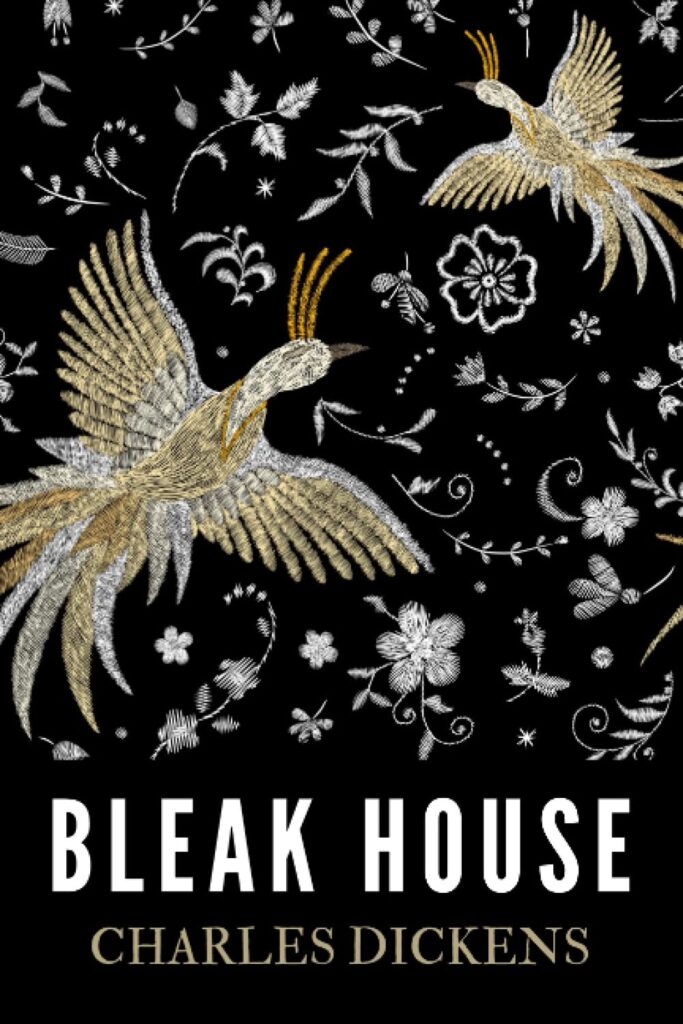
Bleak House‘s heroine’s virtue is exemplified in her homemaking, although she’s not a mother. It made me realize that keeping house was not just tedious extra, but actually evidence of your actual character. Bleak House reminds us to be patient and persistent and hopeful in the midst of trials (literal and metaphoric).
There were two classes of charitable people: one, the people who did a little and made a great deal of noise; the other, the people who did a great deal and made no noise at all.
-- Bleak House, by Charles Dickens
Mansfield Park by Jane Austen
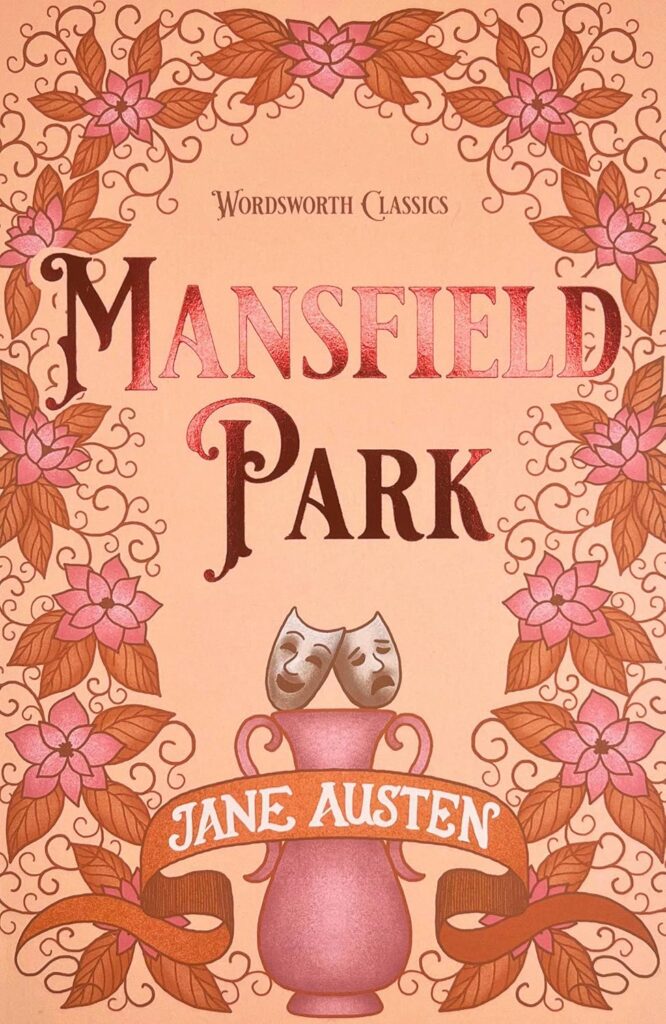
Mansfield Park has no ideal mother character, but the heroine does bounce between two very different homes. Though neither is perfect, how they are kept is indicative of the familial health. Austen, in all her novels, always provides commentary on various female types and temptations. An attentive reader will necessarily be provoked and convicted by her dry analysis.
Henry Crawford had too much sense not to feel the worth of good principles in a wife, thugh he was too little accustomed to serious reflection to know them by their proper name.
Mansfield Park, by Jane Austen
Anna Karenina by Leo Tolstoy
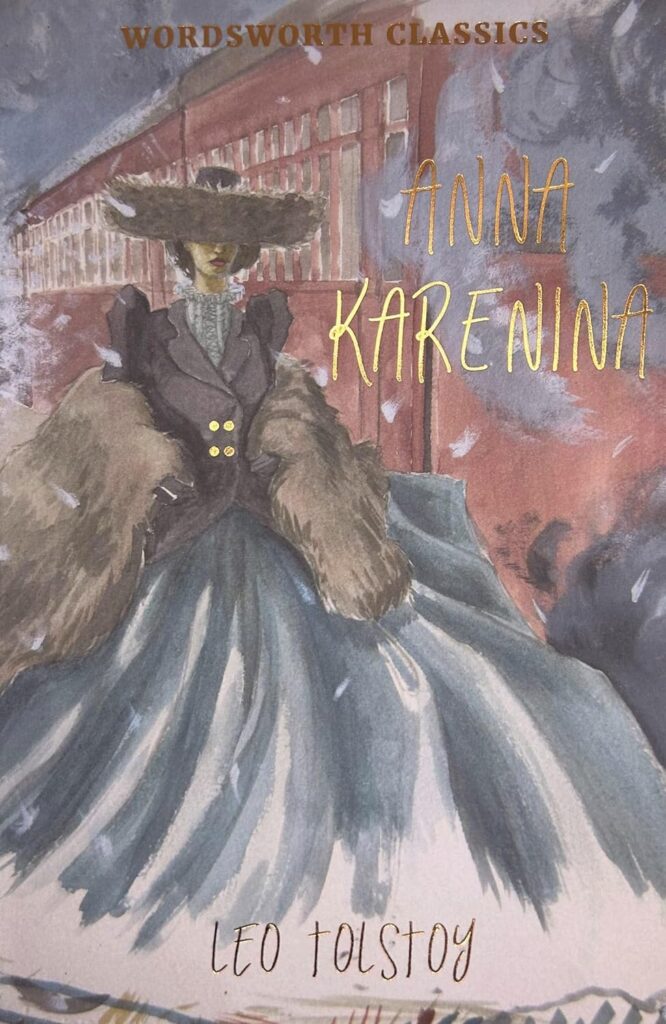
Anna Karenina is not our role model, certainly, but sometimes we see how we should think and act by contrast. The novel also does portray characters as Anna’s foil that teach by counterexample. One theme of the novel is familial/domestic harmony – and we see how women make or break that harmony.
Moms reading novels like Anna Karenina can help us understand temptations we or our friends might face – and we at least know what not to do.
Happy families are all alike; every unhappy family is unhappy in its own way.
Anna Karenina, Leo Tolstoy
Hannah Coulter by Wendell Berry
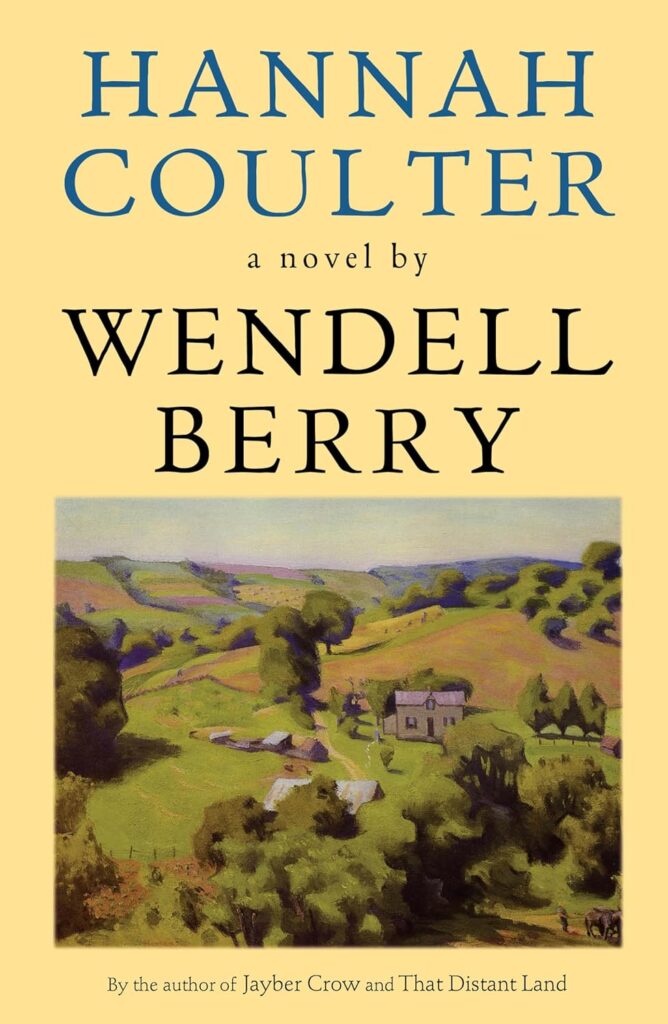
Wendell Berry’s novel Hannah Coulter is also a very formative perspective on life from a feminine angle. As Hannah reflects on her life and her children in her old age, we learn to think about our own lives from the future’s point of view as well. Plus, we see how the way we see ourselves now might not be correct.
Even though life might not turn out the way we expected, the way we were working for as young women, there will always be a way to move forward in faithfulness and joy.
As she nursed and the milk came, she began a little low contented sort of singing. I would feel milk and love flowing form me to her as once it had flowed to me. It emptied me. As the baby fed, I seemed slowly to grow empty of myself, as if in the presence of that long flor of love even grief could not stand.
-- Hannah Coulter, by Wendell Berry
Kristin Lavransdatter by Sigrid Ungset
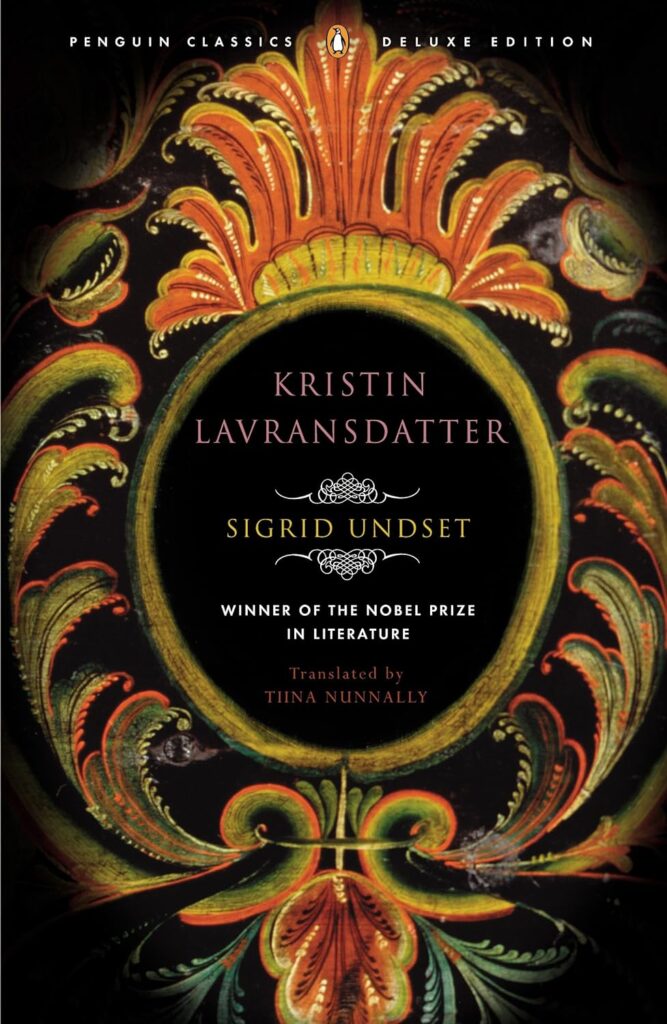
My first caveat to this sublime novel is that no woman should read Kristin Lavransdatter while pregnant or postpartum. I read it just as I was becoming a mother of teen boys and it felt like a gut-punch.
Kristin makes many, many mistakes. She both builds up her house with energy and commitment and she also tears it down with her own hands – sometimes both at the same time. It is a story of the suffering, joy, and struggle of marriage and motherhood, and how women make or break their husbands and sons.
But I didn't realize then that the conseqence of sn is that you have to trample on other people.
--Kristin Lavransdatter, by Sigrid Ungset

